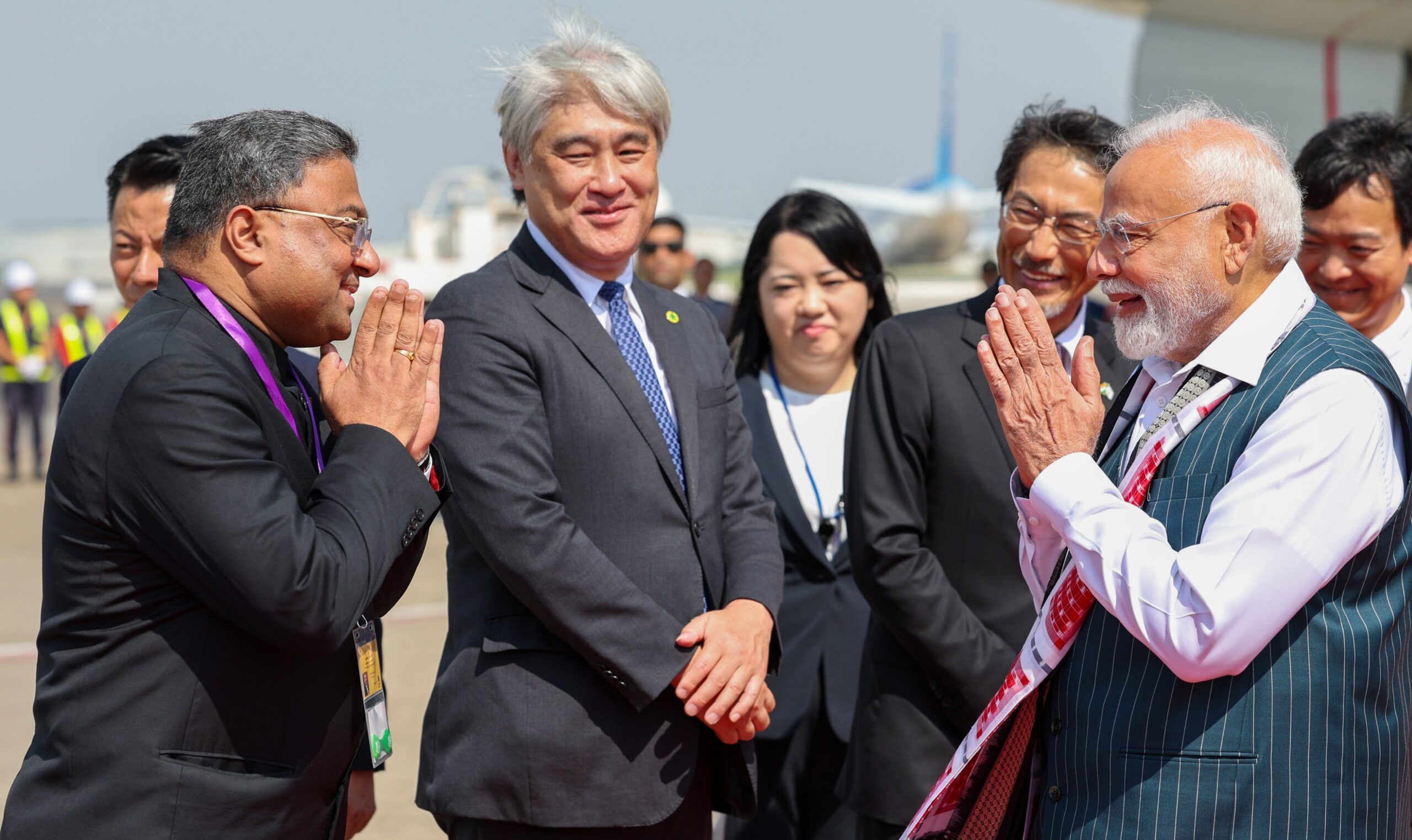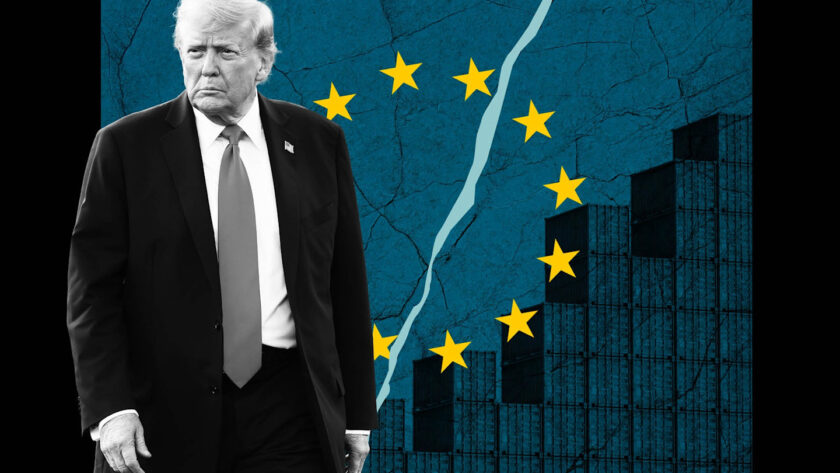Modi in Tokyo for 15th India-Japan Summit: Focus on Trade, Tech, and Strategic Ties
Tokyo/New Delhi: Prime Minister Narendra Modi was warmly welcomed at Tokyo’s Haneda Airport on Friday as he arrived for the 15th India-Japan Annual Summit. This marks Modi’s first standalone visit to Japan in more than seven years and underscores the importance New Delhi attaches to its partnership with Tokyo at a time of shifting geopolitical and economic currents in the Indo-Pacific.
The visit is set to strengthen the “Special Strategic and Global Partnership” between the two nations. During his three-day stay, Modi will hold talks with Japanese Prime Minister Fumio Kishida, participate in the India-Japan Business Summit, and meet leading industrialists and members of the Indian diaspora.

Welcomed at the Airport
Modi’s aircraft touched down at Haneda Airport on Friday morning, where he was received by senior Japanese officials and India’s Ambassador to Japan. Traditional greetings and a small cultural performance were arranged at the airport to highlight Japan’s warmth towards the visiting dignitary.
This ceremonial welcome set the tone for what is expected to be a high-powered visit, marked by political discussions, business announcements, and cultural engagements.
Summit Agenda
The centrepiece of Modi’s visit is the 15th India-Japan Annual Summit, where he and Kishida are expected to deliberate on multiple issues — from economic cooperation to defense ties. Both leaders will review the progress made since their last in-person meeting on the sidelines of the Quad summit in 2023 and outline fresh goals for the next phase of bilateral relations.
According to officials, the summit will feature discussions on:
-
Trade and Investments: Japan is already one of India’s biggest investors, with more than $40 billion in cumulative FDI inflows. Talks are likely to explore new avenues in digital technologies, semiconductors, and supply chain resilience.
-
Infrastructure: Japan has been a leading partner in India’s high-speed rail project and urban infrastructure upgrades. Expansion of these projects is on the table.
-
Defense and Security: With regional tensions in the Indo-Pacific, both sides will look at enhancing naval cooperation and joint military exercises.
-
Global Issues: Climate change, clean energy, and UN reforms are also expected to be key talking points.
India-Japan Business Summit
Ahead of the summit, Modi will address the India-Japan Business Summit, which brings together CEOs and policymakers from both countries. The forum will highlight India’s expanding role as a manufacturing hub and Japan’s strengths in technology and innovation.
Sources indicate that major Japanese companies are preparing to announce new investments in India’s electronics, automotive, and green energy sectors. Modi is expected to pitch India as a stable, fast-growing economy with a skilled workforce, making it an attractive destination for Japanese capital at a time when supply chains are realigning away from China.
Diaspora Outreach
As with most of Modi’s foreign visits, engaging with the Indian diaspora is on the agenda. He will interact with members of the vibrant Indian community in Tokyo, acknowledging their contribution to strengthening people-to-people ties between the two countries.
The diaspora event is expected to feature cultural performances and a keynote address by Modi, underlining how Indians abroad act as vital bridges in global diplomacy.

Historical Context
India and Japan’s annual summits date back to 2006, when the partnership was elevated to a “Global and Strategic” level. In 2014, under Modi and then Prime Minister Shinzo Abe, the relationship was further upgraded to a “Special Strategic and Global Partnership.”
Over the years, Japan has emerged as one of India’s strongest allies in Asia — not just in trade and technology but also in shaping the Indo-Pacific’s security architecture. Tokyo is among the few capitals that enjoys bipartisan goodwill in New Delhi, with projects such as the Delhi-Mumbai Industrial Corridor and the Mumbai-Ahmedabad bullet train symbolising the depth of cooperation.
Strategic Significance
The timing of Modi’s visit is crucial. Both India and Japan face an increasingly assertive China, which has expanded its influence in the South and East China Seas. Strengthening their bilateral defense ties adds to broader security cooperation under the Quad grouping, which also includes the US and Australia.
Economically, Japan’s expertise in cutting-edge technology, coupled with India’s large market and growing talent pool, provides an opportunity for synergy. From hydrogen energy to semiconductor manufacturing, the two sides are eyeing collaborations that could define the future of the Indo-Pacific economy.
Expected Outcomes
While official announcements will be made after the summit, diplomats suggest that several Memorandums of Understanding (MoUs) are in the pipeline. These are expected to cover:
-
Expansion of Japanese investment in India’s technology and green energy sectors.
-
Strengthening of defense technology collaboration.
-
Deeper cooperation in clean energy and digital innovation.
-
Possible new funding support from Japan for India’s infrastructure projects.
Modi’s Broader Diplomatic Calendar
The Tokyo visit is part of Modi’s wider diplomatic outreach this year. With the G20 presidency recently concluded and India’s growing voice in forums like the Quad and BRICS, Modi’s stop in Japan reinforces New Delhi’s commitment to like-minded democracies.
Observers note that this visit also comes as both nations look to play stronger roles in shaping a rules-based international order, especially in Asia.
Looking Ahead
As Modi and Kishida prepare to meet, all eyes are on the outcomes of the summit and the business forum. The visit is expected to give a fresh push to India-Japan relations, balancing immediate deliverables like trade agreements with long-term strategic visions of security and innovation.
For both New Delhi and Tokyo, the message is clear: in a world of shifting alliances, India and Japan intend to anchor their partnership more firmly than ever before.









